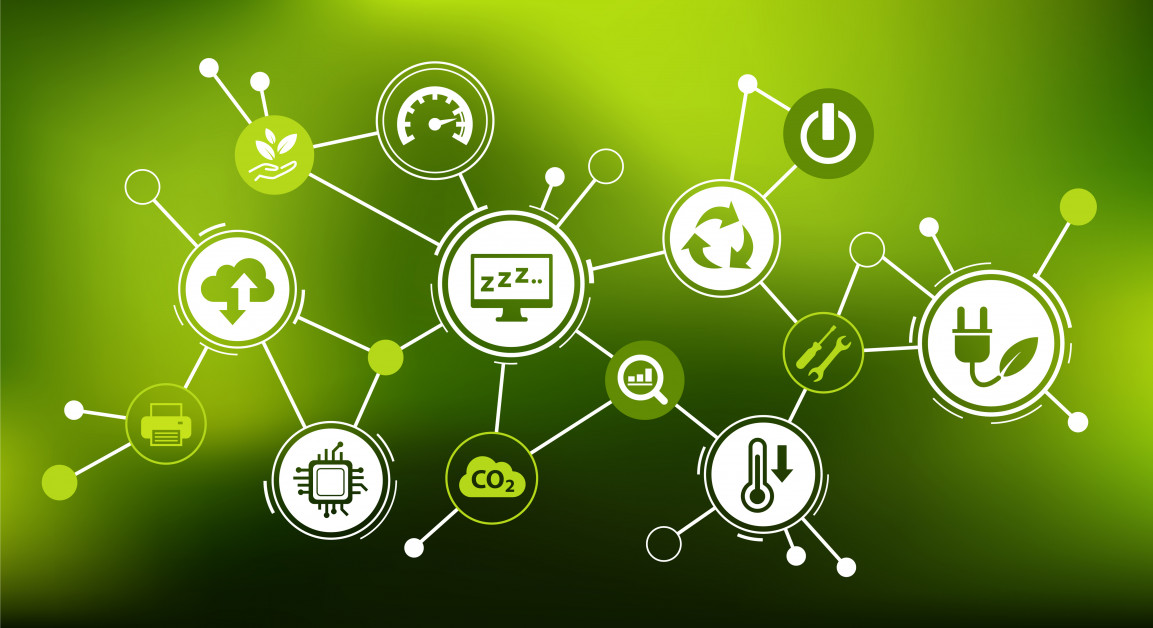As the world faces an unprecedented climate crisis, the call for sustainable solutions has never been louder. Green technology also known as clean technology or cleantech stands at the heart of this transformation. From renewable energy to smart agriculture, it represents humanity’s most promising effort to build a cleaner, smarter, and more sustainable future.
Table of Contents
What Is Green Technology?
Green technology refers to the development and application of products, systems, and processes that are environmentally friendly and resource-efficient. Its core goal is to reduce pollution, conserve energy, and minimize the ecological footprint of human activities.
According to the United Nations Environment Programme (UNEP), green innovation focuses on creating solutions that balance economic growth with environmental protection ensuring that progress does not come at the planet’s expense.
The Evolution of Sustainable Innovation
In the past, technological growth often came at a cost: deforestation, industrial waste, and carbon emissions. However, the 21st century has seen a global shift toward sustainability-focused innovation. Governments, corporations, and startups are now investing heavily in clean energy, waste reduction, and eco-efficient materials.
Projects like the European Green Deal and global agreements such as the Paris Climate Accord demonstrate that sustainability is no longer optional it’s the foundation for future development.
Key Areas of Green Technology
1. Renewable Energy
Renewable energy is the cornerstone of the green tech revolution. Solar, wind, hydropower, and geothermal sources are replacing fossil fuels as cleaner alternatives.
Modern solar panels can convert more than 25% of sunlight into electricity, while floating wind farms like those developed by Ørsted and Siemens Gamesa are generating record-breaking energy outputs. These technologies are not only reducing emissions but also lowering costs, making green energy accessible worldwide.
2. Sustainable Transportation
The rise of electric vehicles (EVs), hydrogen fuel cells, and biofuels is transforming transportation. Companies like Tesla, Rivian, and BYD are leading the global EV market, while nations are building smart charging infrastructures to support widespread adoption.
Additionally, innovations in hyperloop technology and electric aviation such as those developed by ZeroAvia could soon revolutionize how humans move, cutting travel emissions dramatically.
3. Smart Cities and Energy Efficiency
Green technology also extends to urban living. Smart cities use IoT sensors, AI-driven traffic control, and renewable-powered grids to manage resources efficiently.
Cities like Singapore and Copenhagen are global models of sustainable urban planning. Their success proves that smart energy systems, electric public transport, and waste-to-energy plants can make modern cities both high-tech and eco-friendly.
4. Circular Economy and Waste Management
A major focus of sustainable innovation is the circular economy a system where waste is minimized by reusing, recycling, and repurposing materials.
Startups are developing biodegradable plastics, AI-powered recycling systems, and zero-waste manufacturing techniques. Companies such as TerraCycle are pioneering recycling solutions for previously non-recyclable materials, promoting global waste reduction.
5. Green AI and Digital Sustainability
While AI consumes vast computing power, researchers are designing green algorithms to reduce energy use in data centers. According to MIT Technology Review, sustainable AI systems could cut carbon footprints of large models by up to 80%.
Tech giants like Google and Microsoft have committed to running entirely on renewable energy by 2030 — a major step toward eco-conscious computing.
The Benefits of Green Technology
- Environmental Protection: Reduces pollution and conserves biodiversity.
- Economic Growth: Creates new industries and millions of green jobs.
- Energy Security: Decreases dependence on fossil fuels.
- Health and Well-being: Cleaner air and water improve global health outcomes.
As the World Economic Forum notes, investing in sustainable technologies could add $10 trillion to the global economy by 2050 while preventing irreversible environmental damage.
Challenges in the Green Tech Transition
Despite its potential, the shift toward green technology faces obstacles:
- High initial costs for renewable infrastructure.
- Limited access to sustainable technologies in developing nations.
- Resource constraints for producing batteries and solar materials.
- Policy and regulatory barriers to green innovation.
Overcoming these challenges requires global cooperation, supportive legislation, and continuous research investment.
The Future of Sustainable Innovation
The future of green technology lies in integration and scalability. Breakthroughs in AI, nanotechnology, and bioengineering will make sustainable systems smarter and more efficient.
Imagine carbon-negative buildings, self-charging solar highways, or AI-managed global energy networks — these are not distant dreams but near-future realities.
As highlighted by NASA’s Technology Transfer Program, innovations developed for space exploration are now inspiring eco-solutions on Earth from water purification systems to renewable power management.
Conclusion: A Greener Tomorrow Starts Today
Green technology is not just about saving the planet it’s about redefining progress. The future will belong to nations and industries that innovate sustainably, balancing growth with responsibility.
By embracing renewable energy, smart infrastructure, and circular economies, we can build a cleaner, fairer, and more resilient world for generations to come.
The era of sustainable innovation has already begun and it’s transforming our planet into a smarter, greener home for all.
Also Check Metaverse Revolution – Comprehensive Guide – 2025





1 thought on “Green Technology – Future of Sustainable Innovation – 2025”